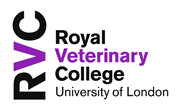Project Summary:
In racehorses, fractures due to bone overloading are the primary reason for euthanasia on the racecourse. Previous work has demonstrated a genetic component to fracture risk1. We have established robust protocols to derive induced pluripotent stem cells (iPSCs) from horses at high and low genetic risk of fracture and differentiate them into bone forming osteoblasts in vitro2,3.
In this PhD project the student will use previously analysed RNA sequencing data to select genes that are differentially expressed between iPSC-osteoblasts derived from horses at high and low genetic risk of fracture. The successful candidate will initially apply bioinformatics to existing whole genome sequencing (WGS) data to identify single nucleotide polymorphisms (SNPs) that lie in enhancer/promoter regions of differentially expressed genes and predict if they affect transcription factor binding. They will then experimentally apply over- and under-expression of the gene of interest and potential upstream transcription factors to determine the effect on downstream gene expression and osteoblast differentiation. The student will also use genome editing technology to generate isogenic iPSC lines to determine the specific effects of the most promising SNP on gene expression and cell differentiation.
This project takes a unique approach to determine the effect of genetic changes associated with fracture risk on bone cells and understand the underlying biology which could lead to the development of novel therapies and interventions for high risk horses. It will provide an excellent training opportunity for a student in a wide range of wet and dry lab techniques. This PhD will be based at the Hawkshead campus but there will be opportunities to interact with research members of the Musculoskeletal Biology group working at both RVC campuses to provide a broad research experience. (www.rvc.ac.uk/research/programmes/comparative-physiology-and-clinical-sciences/musculoskeletal-biology)
Requirements
Essential
- Must meet our standard PhD entry requirements
- Students who have, or are expecting to attain, at least an upper second class honours degree (or equivalent) in relevant biological subjects or veterinary medicine.
Desirable
- Although not necessary, previous laboratory based or computational experience would be useful, such as an MSc and/or undergraduate project work or work experience placements.
This is a 3.5 year fully-funded studentship, open to applicants eligible for "Home" fees. International applicants are welcome to apply but must be able to fund the difference between "Home" and "Overseas" tuition fees.
Please note that EU/EEA and Swiss national students may no longer be eligible for the “Home” rate of tuition fees, dependent on personal circumstances (including immigration status and residence history in the UK) and UK government rules which are currently being developed. For up-to-date information on fees for EU/EEA and Swiss national students following brexit please see our fees and funding page.
The studentship will commence 1st October 2021.
If you are interested in applying for this position, please follow the link below. Please use your personal statement to demonstrate any previous research experience. Experience in cell culture, molecular biology techniques and genetic analysis would be an advantage.
How to Apply
For more information on the application process please see How to Apply.
Interviews will take place remotely over zoom.
We welcome informal enquiries - these should be directed to [Email Address Removed]
Deadline: 5th April 2021

 Continue with Facebook
Continue with Facebook



